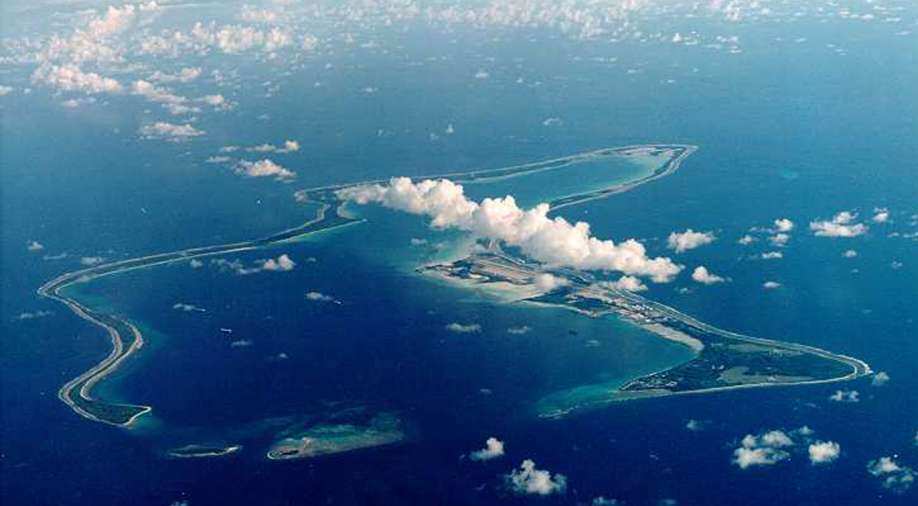
A group of Eelam Tamil asylum seekers being held in the British Indian Ocean Territory (BIOT) of Diego Garcia have been granted a small reprieve in their battle against being deported to Sri Lanka, as more details of bullying, sexual assault and suicide attempts continued to emerge.
A total of 61 asylum seekers are being held on Diego Garcia and are waging a tedious legal battle to claim asylum.
BIOT Commissioner Paul Candler initially decided that the group could be deported to Sri Lanka. Faced with ten of the group challenging the decision in the British Indian Ocean Territory supreme court, however the Commissioner decided the withdraw from the move.
It grants each of the group of ten a fresh opportunity to assess their cases.
Doughty Street Chambers said that “the claimants argued that the process was procedurally unfair and otherwise unlawful on a number of grounds, including that they had been given no chance to explain points on which they had been disbelieved; medical reports capable of corroborating accounts of torture and abuse had not been obtained; and adverse inferences had been drawn from their answers at interviews whose purpose had not been explained and at which they had been given no confidentiality assurances”.
“They’ve run a completely unfair process, which they’ve now had to scrap, and decisions have been withdrawn,” Tessa Gregory, a lawyer Leigh Day, told The New Humanitarian. “It beggars belief that we got this far along in our challenge before they withdrew the decisions.”
The decision comes amidst further details of bullying by G4S security guards, and at least two reported incidents of sexual assault in the camp where the Tamils are being housed.
Their harrowing experience began in October 2021, when boat carrying the Eelam Tamils, who had fled from refugee camps in Madurai and Thiruchirapally in India, had to be rescued at sea and brought to Diego Garcia. The refugees were since held in prison-like conditions Diego Garcia, which is a collection of islands is run from London by a Commissioner appointed by the King. The BIOT appears to escape the reach of international law, such as the Refugee Convention, and operates within a legal grey area.
Many of the refugees have shared their experiences of being tortured or harassed by both Sri Lankan and Indian security forces.
Upon arrival, the refugees were informed that they would not be able to seek asylum in Diego Garcia as only military personnel lived on the island. The Indian Ocean archipelago has been at the center of a decades-long dispute over Britain's decision to separate it from Mauritius in 1965 and set up a major joint military base with the US on -Diego Garcia, the largest of the islands. In the early 1970s, between 1,500 and 2,000 islanders were forcibly deported so the island, Diego Garcia, could be leased to the US.
Since then the UK government has introduced the controversial Illegal Migration Bill which will bar asylum seekers from claiming protection in the UK if they arrive through "irregular means".
Upon fear of being deported to Rwanda, 5 of the refugees attempted to kill themselves, following which the-then foreign secretary, Liz Truss said that because of the “credible threat of mass suicide… processing the group in the UK represents the only option” due to the lack of facilities available in Diego Garcia. Among the above-mentioned inhumane treatment and living standards, the lack of translators and the lack of funding posed a severe hurdle for the refugees. The funding, which comes in the form of legal aid, allows the refugees to submit the necessary documents, evidence, and testimonies to strengthen their case. The lack of funding has resulted in misinterpretation by the commission hearing their case, mistranslations, and overall lack of clarity and understanding of claims made by the refugees.
Following multiple hurdles thrown at them, some of the group have reportedly been offered payments from the British government to “voluntarily” return to Sri Lanka.
We need your support
Sri Lanka is one of the most dangerous places in the world to be a journalist. Tamil journalists are particularly at threat, with at least 41 media workers known to have been killed by the Sri Lankan state or its paramilitaries during and after the armed conflict.
Despite the risks, our team on the ground remain committed to providing detailed and accurate reporting of developments in the Tamil homeland, across the island and around the world, as well as providing expert analysis and insight from the Tamil point of view
We need your support in keeping our journalism going. Support our work today.
For more ways to donate visit https://donate.tamilguardian.com.

